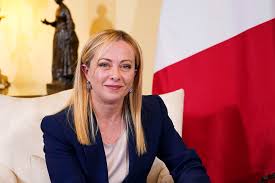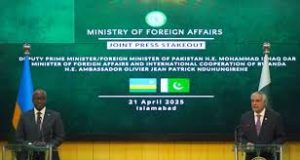Italy approves hiring incentives, cash giveaway before EU vote

Rome: The Italian government approved an economic package on Tuesday focused on temporary tax breaks for firms that hire staff on open-ended contracts and a cash bonus of up to 100 euros ($107) for low earners.
The measures come a month before European elections which will test the popularity of Prime Minister Giorgia Meloni’s right-wing coalition.
Deputy Economy Minister Maurizio Leo told reporters the limited resources available forced the government to limit the size of the package, given Italy’s need to maintain “an obsessive attention” on its creaking public finances.
Italy last year posted the widest budget deficit in Europe as a proportion of gross domestic product (GDP), and the government says public debt, already the second highest in the euro zone, will rise further through 2026.
“We want to give the markets the perception that we are moving with the utmost care,” Leo said after the cabinet signed off on the package.
One of the incentives aims to encourage employers to permanently hire women or people under the age of 35 by cutting the social security contributions firms would have to pay for these workers over two years.
The scheme is part of a wider decree aimed at speeding up the spending of cohesion funds, which for Italy amount to 75 billion euros between European Union and domestic resources.
Leo said a separate decree to be adopted in the next few days will allow companies, for 2024 only, to reduce their taxable income by up to 130% of the costs incurred for newly hired permanent employees, so long as their overall workforce increases compared to last year.
The tax break is retroactive as it will apply to all hiring made on or after January this year, he added.
The measure was announced late last year but has not yet come into force. At the time, the Treasury estimated its cost at some 1.3 billion euros, saying it would be funded by removing an allowance granted to banks and other firms that boost their capital.
Under the cash bonus initiative, which is worth roughly 100 million euros, families that include at least one child and have a single-income no higher than 28,000 euros per year will be given up to 100 euros next January.
“The bonus is paid out next year because there is no funding in 2024,” Leo said.





